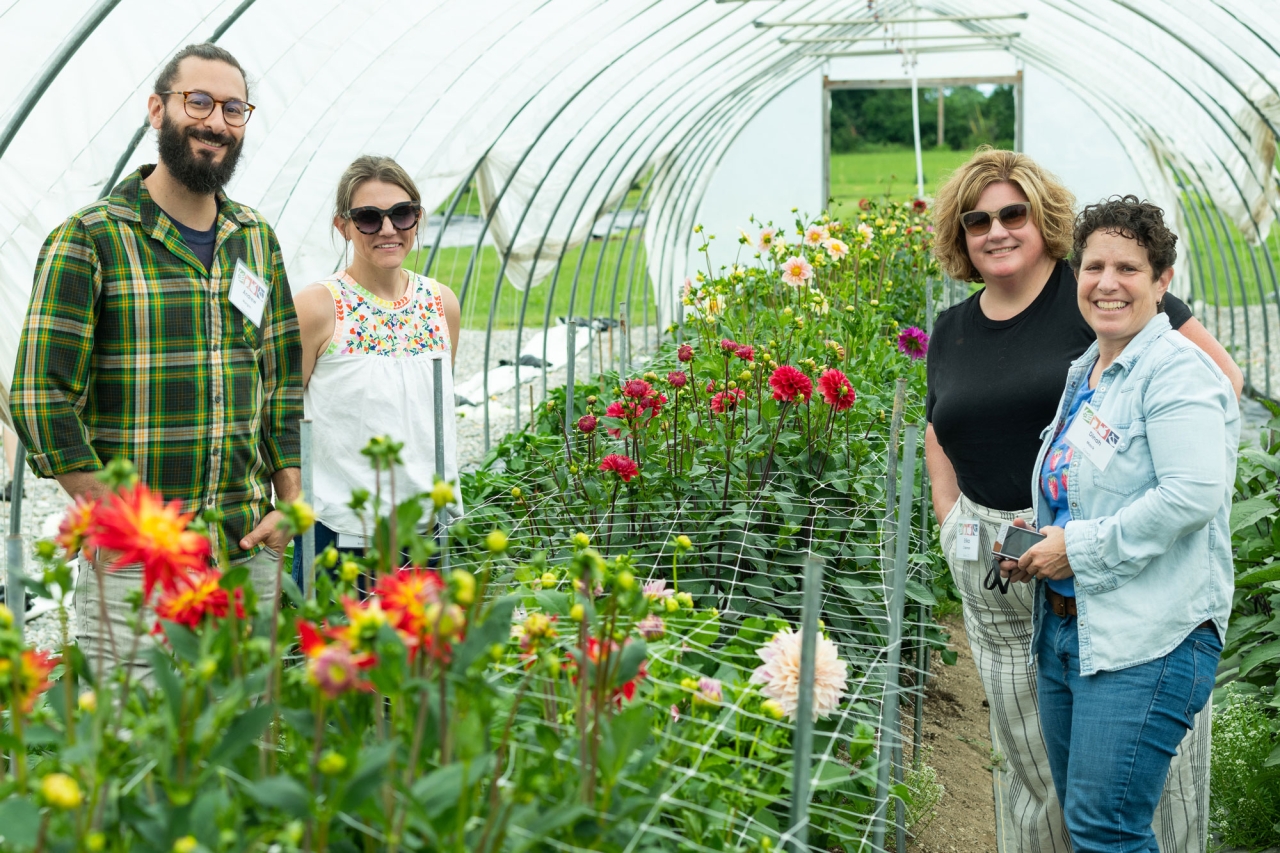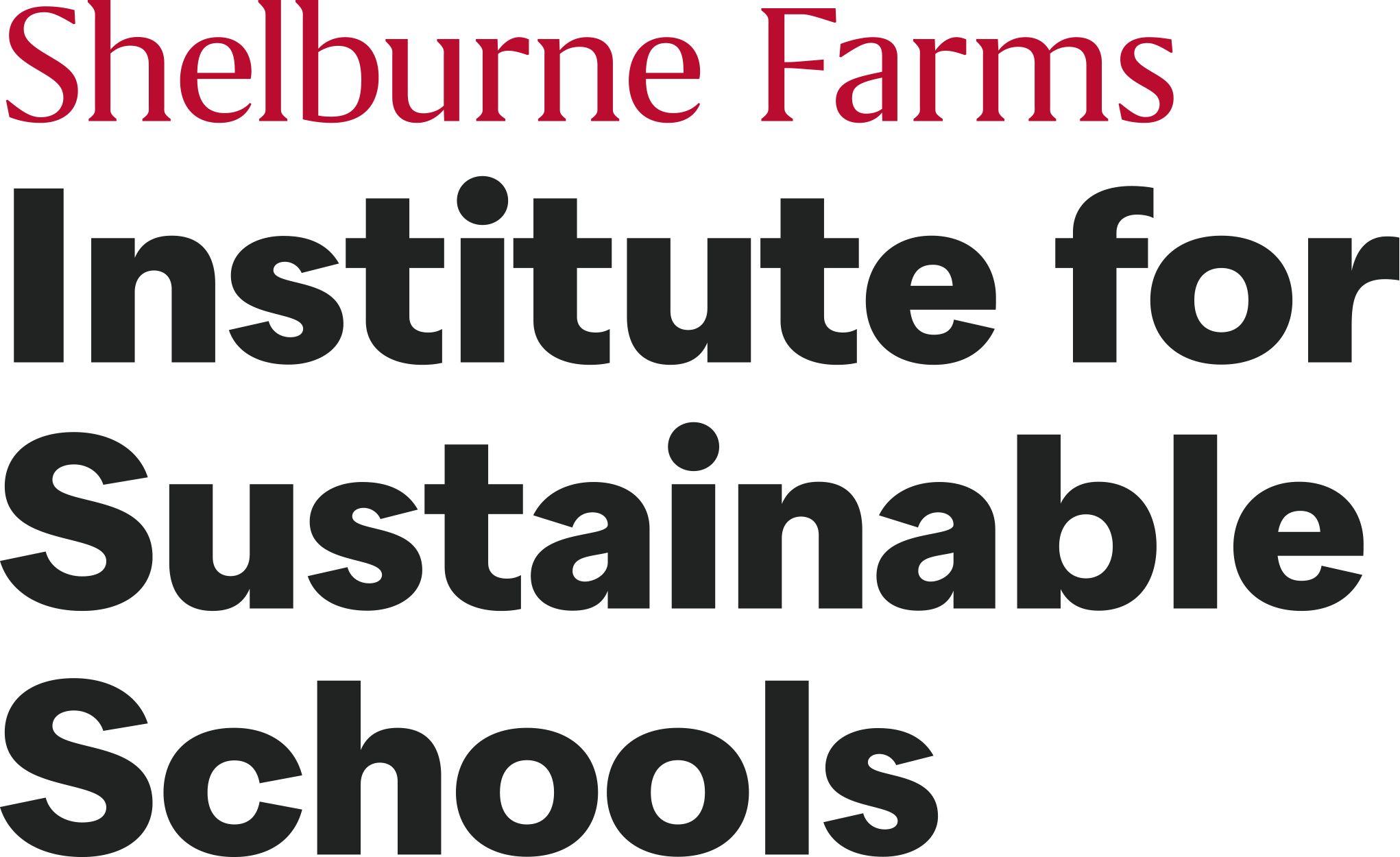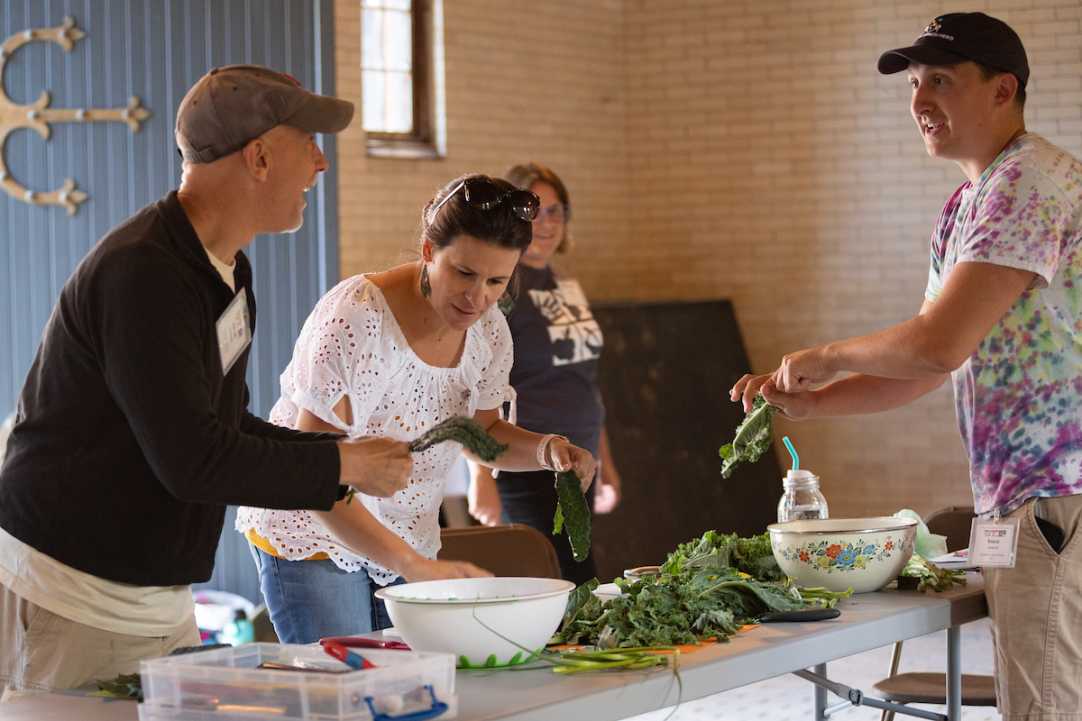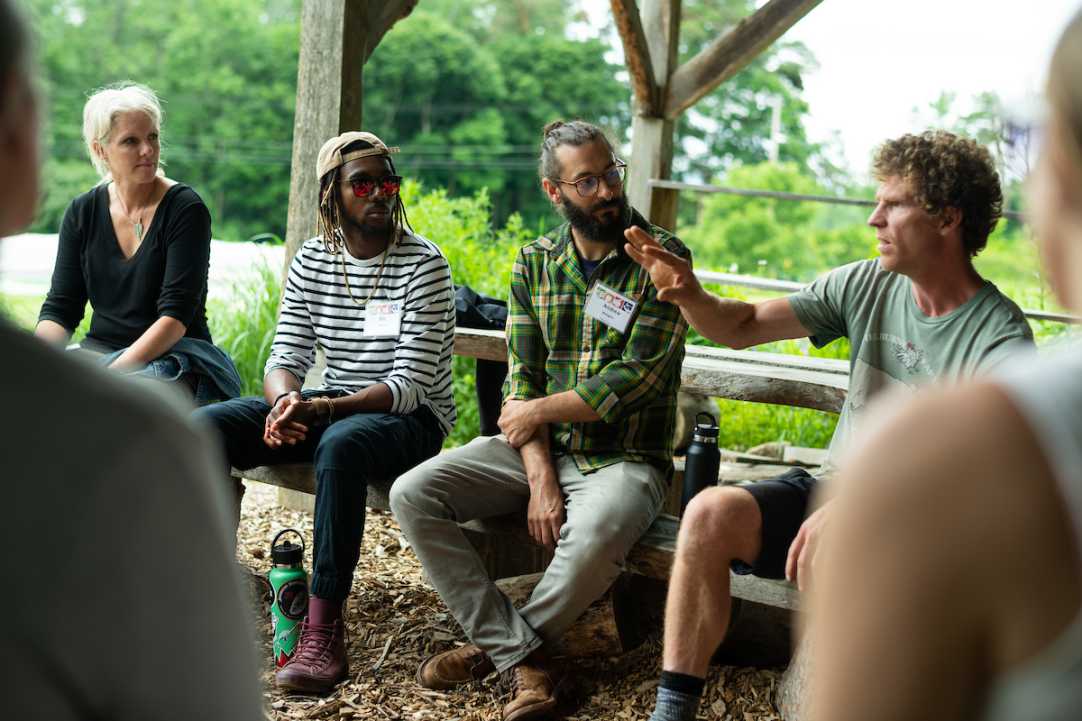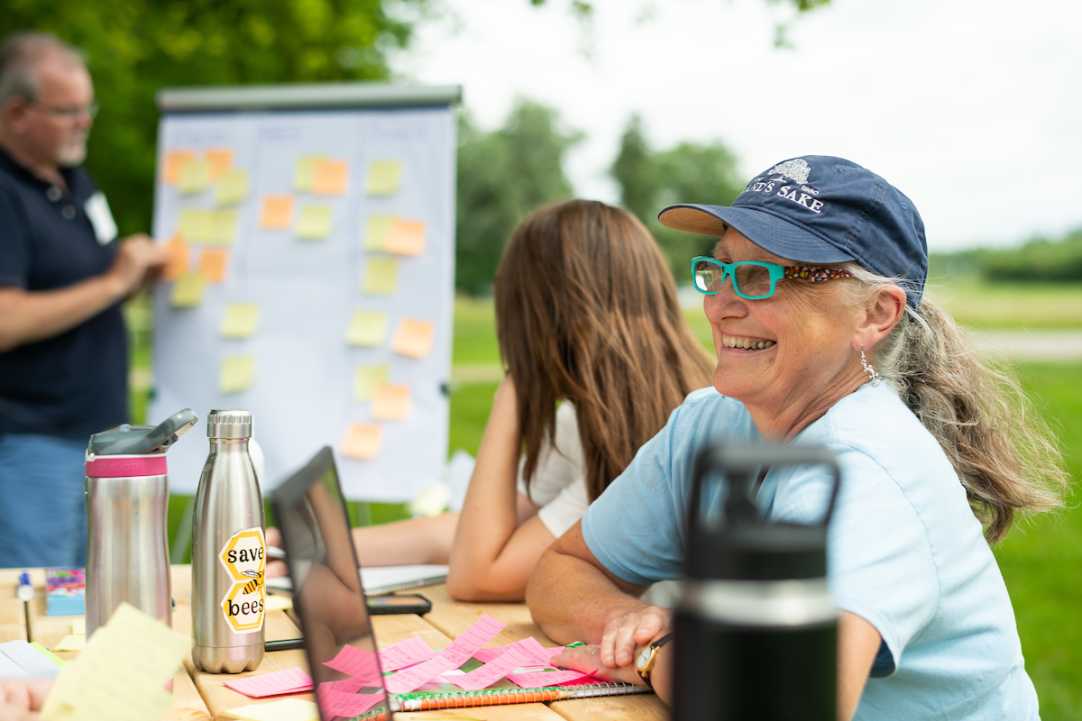A year-long professional learning opportunity for Northeast school, district, and early childhood teams.
Begins June 23–25, 2026 with an in-person retreat at Shelburne Farms.
Farm to school supports youth in connecting the dots of where their food comes from and how their food choices impact their bodies, the environment, and their communities at large.
Since 2010, the Northeast Farm to School Institute has been bringing teams together to build relationships, skills, and a collaborative action plan for their schools. With the support of a coach, teams spend the school year putting their plans into action and strengthening their capacity to impact classrooms, cafeterias, and communities, with change that lasts.
Join us to cultivate vibrant communities, just food systems, and healthy kids.
The Northeast Farm to School Institute is a program of Vermont FEED, our partnership project with NOFA-VT. This opportunity is funded at least in part with Federal funds from the US Department of Agriculture.
Program expenses during the three-day summer retreat are generously supported by the US Department of Agriculture. Any travel and incidental expenses are the responsibility of participants.
A Recipe for Success: Benefits of Participation
Our Institute goes beyond learning the basics of farm to school and early childhood. We help teams build the relationships, skills, and connections you need to implement robust farm to school programs that align with your school’s priorities.
- Build a whole-school team: Forge strong cross-departmental relationships that enable classroom teachers, administrators, and child nutrition staff to build shared leadership and capacity for the long haul.
- Create an action plan: Develop a values-based, school-wide farm to school action plan that integrates curriculum, local procurement, youth voice, and family and community connections.
- Work with your coach: Your team is paired with an experienced coach from your state’s network. You’ll collaborate with your coach throughout the school year to implement and adapt your action plan to meet your school’s emerging needs.
- Build your skills: Engage in hands-on, role-specific workshops and meet with technical assistance providers to support your action plan.
- Network with peers: Build valuable connections with experienced practitioners, other teams, and like-minded community partners who can provide support, resources, and inspiration.
Building a Team
We encourage and seek diverse teams that contain members of different racial and gender identity, experience levels, and program roles. Identify your farm to school team of 4–7 participants comprising a diverse set of stakeholders:
Teams must be composed of 4–6 individuals representing various constituencies in the school and community. Teams must have representation from the three following roles: administration, teachers, school nutrition/food service. Additional members can include: family members, farmers, community partners, school nurse and other staff, school board, etc.
Teams must be composed of 5–7 individuals representing various constituencies in the school and community. Teams must have: district-level administration, teachers, and school nutrition/food service. Additional team members can include: family members, farmers, community partners, school nurse and other staff, school board, etc.
Hear from Alumni
Learning and sharing with like-minded folks in the farm to school movement is an incredible experience. You’ll find inspiration at every turn and have ample time to reflect and plan with your group—which never happens in the hustle and bustle of everyday school life. Coaching provides the ongoing, embedded professional learning you need to maintain momentum. And the farm-fresh meals cannot be beaten!
Commitment
This is a year-long program kicking off with an in-person summer retreat. Teams will implement their action plans during the following school year with the support of a coach.
- Spring 2026: All team members watch the program onboarding video prior to the summer kick-off to prepare for the exciting work ahead. We also ask that your team meet at least once before the June Retreat to meet your coach and review the Farm to School Rubric.
- Summer 2026: Attend our summer kickoff retreat June 23–25, 2026 at Shelburne Farms to dive into farm to school action planning, network with peers, and engage in hands-on learning through our working farm campus.
- Fall–Winter 2026–2027: Meet regularly throughout the school year with your coach as you implement your action plan; participate in a virtual, Institute-wide, mid-year check-in; attend virtual workshops; and provide feedback through data collection, evaluation, and storytelling to support program growth and improvement.
- Spring 2027: Prepare a year two action plan with your coach and regroup with your cohort to share your progress and reflections in a year-end virtual gathering, May 2027.
Application Details
- Applications are due Friday, February 20, 2026.
- You may preview the long-form application questions (select "make a copy" to access your own editable Google document) to more easily collaborate as a team on your responses. Copy and paste them into the official application when you’re ready. Please try to limit each answer to 500 words or less.
- Notifications of team selections will be made by early March 2026.
- Program expenses during the three-day summer retreat are generously supported by the US Department of Agriculture. Any travel and incidental expenses are the responsibility of participants.
Review our FAQ page for more details about the program. If you have additional questions, please reach out to Professional Learning Facilitator & Educator Courtney Mulcahy at institute@vtfeed.org.
Meet the Core Instructors
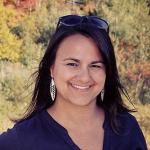

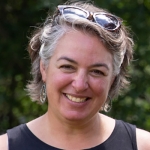
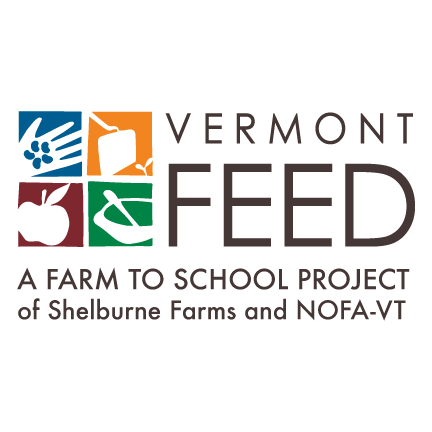
The Northeast Farm to School Institute is a program of Vermont FEED, a partnership project of Shelburne Farms Institute for Sustainable Schools and NOFA-VT. Together, we share over forty years of experience in farm to school, supporting teachers, school nutrition staff, early childhood providers, farmers, administrators, students, and community-based organizations.
Connect with Us
